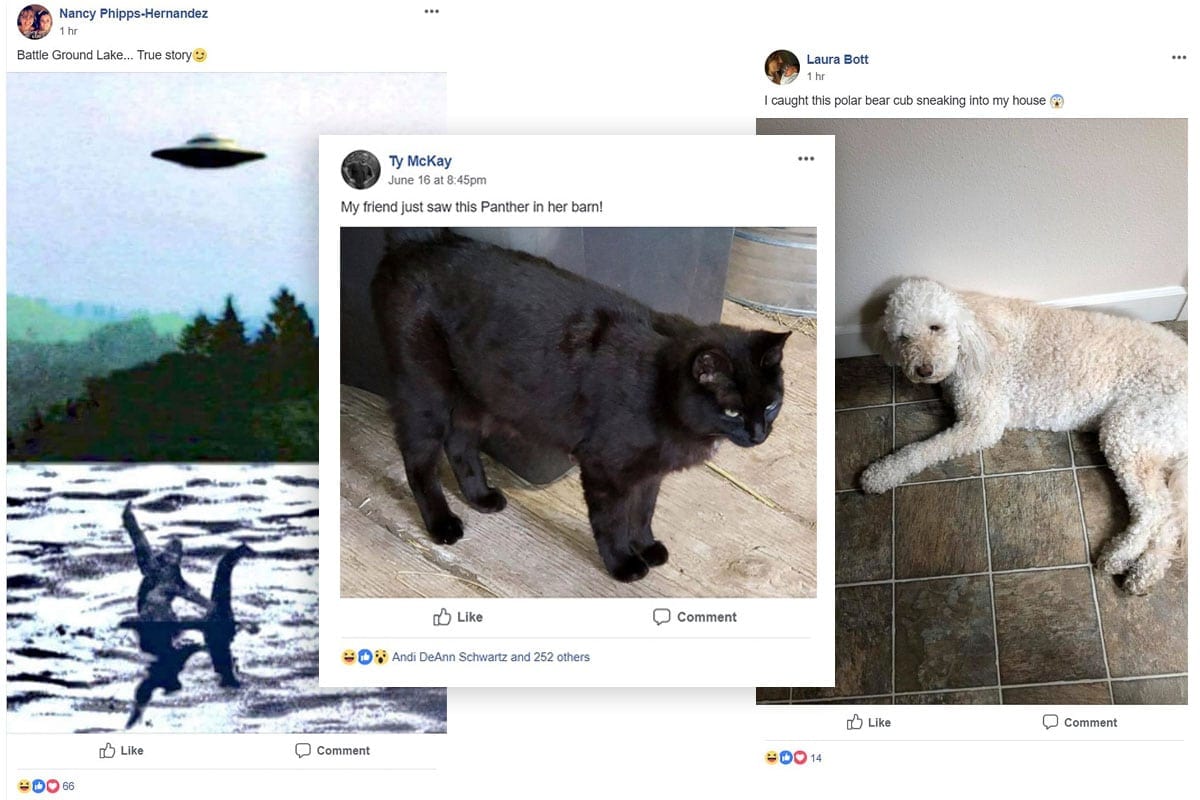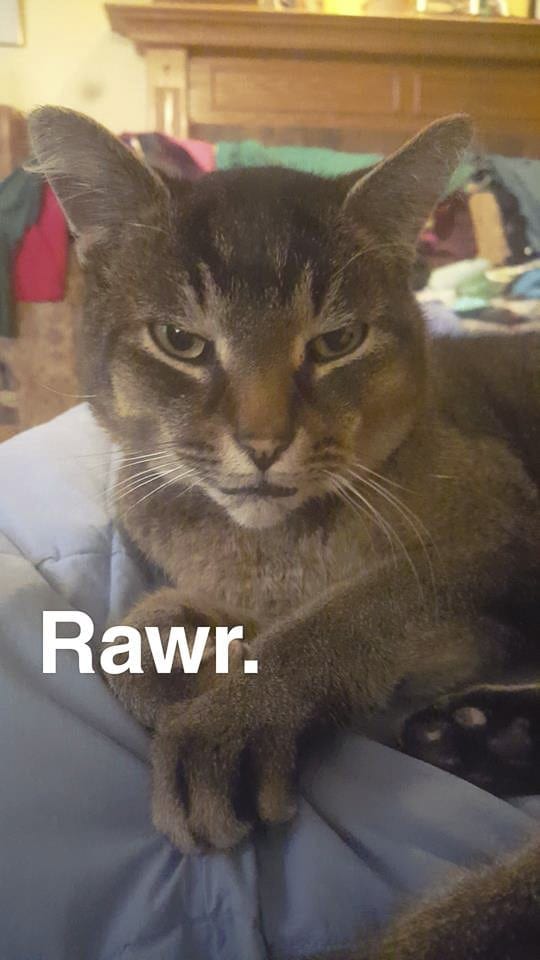False alarm Saturday doesn’t mean one of the big cats wasn’t actually moving through Battle Ground last week
BATTLE GROUND — Was there really a cougar roaming within the city limits of Battle Ground last week? On Thursday we heard from LeighAnne Craig, who said she saw one of the big cats jump out of a backyard near her mom’s house near Northwest 6th and Onsdorff. Battle Ground police searched the area, but came up empty. Kids were let into nearby Chief Umtuch Middle School earlier than normal just to be safe.
Thursday’s sighting came on the heels of a couple other reports, so wildlife officials were taking the situation seriously, despite the fact no one had managed to snap a picture of the animal. The city of Battle Ground sent out a press release after another alleged cougar sighting on Saturday morning around the 300 block of NE 10th Street. The headline read, “Cougar sighting in Battle Ground confirmed with photos.”

After several news outlets picked up on the story, the city was forced to issue a retraction. The “cougar” ended up just being a “very substantial and fine-looking” house cat named Ranger.
That mistake ended up in television news reports locally, and even in Seattle, and became the butt of more than a few jokes on the Battle Ground, WA community Facebook page.

Craig insists the animal she saw on Thursday morning was definitely not Ranger, or any other house cat. She described it as being about the size of a large German Shepherd, with a tail between three and four feet long.
Jeff Wickersham with the regional Washington Department of Fish and Wildlife office says urban cougar sightings are pretty rare. When they do happen, the animals are usually just moving through the area.
“We’ve had mature cougars that have come all the way into Vancouver that we have removed before,” says Wickersham. “They have extremely large home ranges, and they’ll follow food. Sometimes they get disoriented and they’ll wander into a place they shouldn’t be.”

Quite often younger cougar, or older ones that can no longer defend their home range, will get moved off by a bigger animal. That sometimes pushes them into areas where humans live, but Wickersham says they usually don’t want to remain there.
“Even when we have those sightings, oftentimes we’ll get several reports, seems credible, and then we never get another one and they disappear,” he says.
In a place like Clark County, with its mix of urban and rural areas, Cougar sightings can occur more often as the animals use green spaces to move from one territory to another.
“Over the last few years we’ve had some reportings in the green belt from Salmon Creek down towards Felida,” Wickersham says. “People will report seeing these from their houses down on the trail, and we’ll get a few calls, and then it disappears.”
The recent sightings, and the deadly attack in North Bend, Washington, have prompted a lot of comments online about how human expansion is driving animals out of their native lands. Wickersham says in the 15 years he’s been working for Fish and Wildlife, he hasn’t seen a noticeable uptick in the number of cougar sightings each year.
“My dad was in this line of work, and there were sightings back then just like there are today,” he says. “I would say that you get spurts and waves.”
While expansion on the edges of the county may push cougars out of their territory, they’re most likely to simply retreat further from humans. But, development within the borders of the county, Wickersham says, could be impacting cougars we didn’t even know were there, forcing them to retreat through cities.
“We’re going to continue to probably have more and more sightings as urbanization in Clark County occurs, just because there are small pockets where they could exist, and maybe they’re eking out a living,” he says. “The real problem comes in when, obviously, you’ve got a human/dangerous wildlife encounter, somebody’s horse, or chickens, or whatever it is gets attacked, or they lose some to an animal like this. Those are the situations we really want to try and avoid, but oftentimes we’re very reactionary to that, because nobody knows that animal is in the area until it does something.”
Late last year a cougar was removed after killing some animals in the Brush Prairie area. In 2011 one was tranquilized and removed from a tree near the VA Hospital along Fourth Plain near I-5. In 2013 there were a number of cougar sightings along the Salmon Creek greenway, and even within the Fircrest neighborhood in Vancouver.
Still, Wickersham adds that even with all his time in the woods around Clark County, he’s only seen a cougar in the wild a couple of times during the course of his work, and never while enjoying the wilderness recreationally.
“Most people are never lucky enough to see one,” he says, “and those that have probably never will again. These sightings can be scary for people at first, but really cougars… I think they’re more afraid of humans than we are of them, and the ones that are adult males and adult females, I think they know the risk of being around human populations, and they avoid that.”




